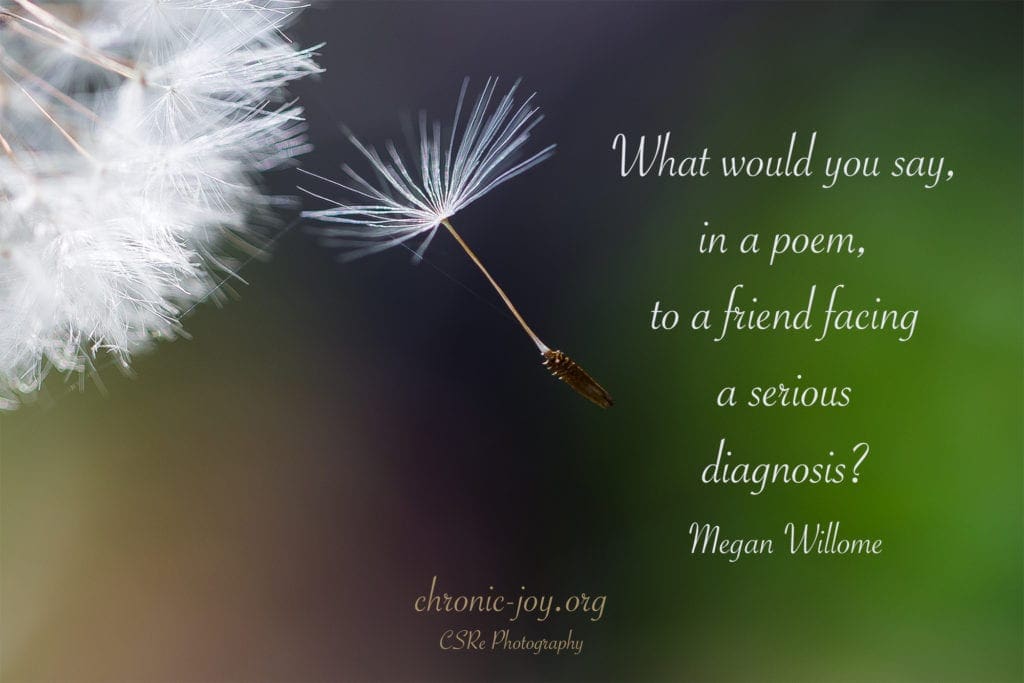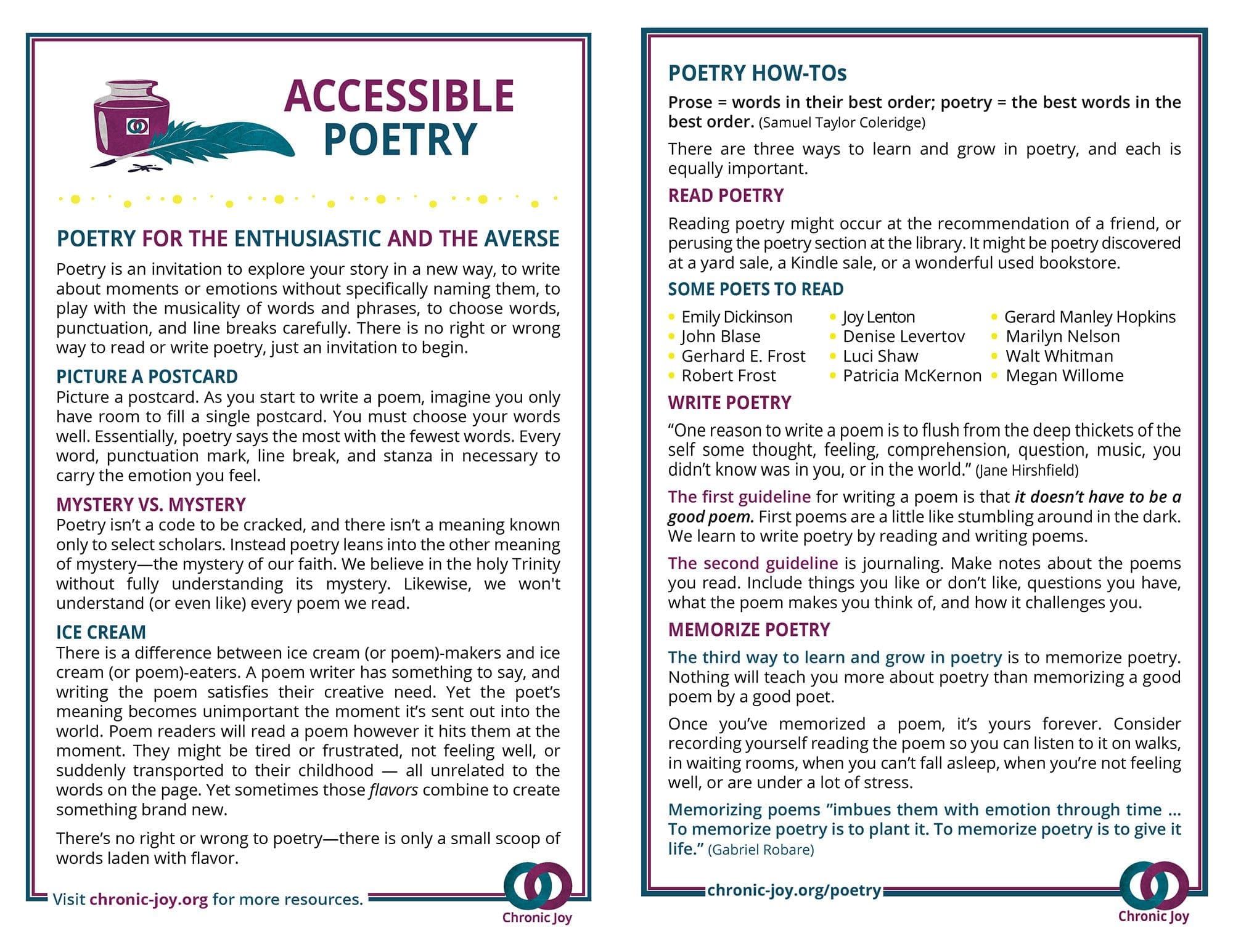
What would you say, in a poem, to a friend facing a serious diagnosis? ~ Megan Willome
When I got the news that my friend was facing a serious cancer diagnosis—the kind that comes with a grim prognosis—I knew better than to send her a get well card. I told her I loved her and that I would pray a Psalm for her every day. (We both love the Psalms.) Keeping her before me daily meant that thoughts of her would pop up at other times of day, like when I read poetry.
In June Tweetspeak Poetry did a book club for John O’Donohue’s To Bless the Space Between Us. I read and journaled and wrote. In the chapter titled “Thresholds” is a poem called “For a Friend on the Arrival of Illness.” I immediately thought about my friend, who by then was recovering from major surgery. But would she receive the poem as a blessing? I marked the poem, prayed it, and kept quiet, letting O’Donohue do the talking.
Here, listen. Any poem is better when read with an Irish accent.
As the book club ended, I took a chance and sent my friend the poem. She wrote back, “You know how when sometimes you read a poem and it’s as if all the thoughts you’ve been thinking are summed up in a way you couldn’t have put words to but cut to the quick of things? Well, I guess that is really poetry at its finest, isn’t it? I read this one and the tears immediately fell. It’s perfect. Intimately perfect.”
Poetry has words for the un-wordable. It can make us think more clearly. It can make us feel things buried. And sometimes it can help us write the words we need to say.
TRY IT: A POEM FOR THE JOURNEY
What would you say, in a poem, to a friend facing a serious diagnosis? How might your experience provide wisdom? Is there a poem that has been a faithful companion on your journey that you could share?
A POEM TO GET YOU STARTED
Another poem by John O’Donohue, “Beannacht.”
Take time to listen to the poem and read (this one includes the words) and write your thoughts.
(For more on O’Donohue, here is one of his last interviews, at On Being, before he died in his sleep in 2008.)
POEM JOURNAL
Even when you don’t feel like writing a poem, you can always journal about one. All you need is a pencil and paper (or a computer, if you prefer to be able to read your own writing).
- Read the poem.
- Jot down what you notice, what you like, what you don’t, what questions you have, and at least one way in which the poem speaks to your soul.
- Read the poem again, aloud (if you didn’t the first time).
- Is anything bubbling up? Do you feel a poem stirring? If so, write it. If not, congratulate yourself anyway because you wrote today by journaling.
Here’s my journaling from “Beannacht,” which means blessing in Gaelic:
- I think the reason I like to go to the beach is to experience the “fluency of ocean.”
- The word “currach,” reminds me of the coracle Reepicheep sails in as he goes to the end of the world, where the waves are sweet, at the end of C.S. Lewis’ The Voyage of the Dawn Treader, from the Chronicles of Narnia.
- Every time I do yoga I find that “The weight deadens / On [my] shoulders.” They’re not meant to carry so much.
- “ghost of loss” describes those times when grief stands up and haunts us unexpectedly, inconveniently.
- Yellow moonlight is so specific. I also like “flock of colors.”
- I want to know more about “slow wind.” It sounds perfect for summer.
- There are so many different types of poems that can be a comfort to someone. The one I sent my friend was explicit about what she is facing. This one is more nuanced, more what I’d like someone to send to me.


Megan Willome
Chronic Joy® Contributing Writer
Megan is an editor at TS Poetry Press as well as the author of The Joy of Poetry and Rainbow Crow, a new picture book of poems written for children. Her day is incomplete without poetry, tea, and a walk in the dark.

Accessible Poetry
Poetry is an invitation to explore your story in a new way, to write about moments or emotions without specifically naming them, to play with the musicality of words and phrases, to choose words, punctuation, and line breaks carefully. There is no right or wrong way to read or write poetry, just an invitation to begin.

Recent Comments